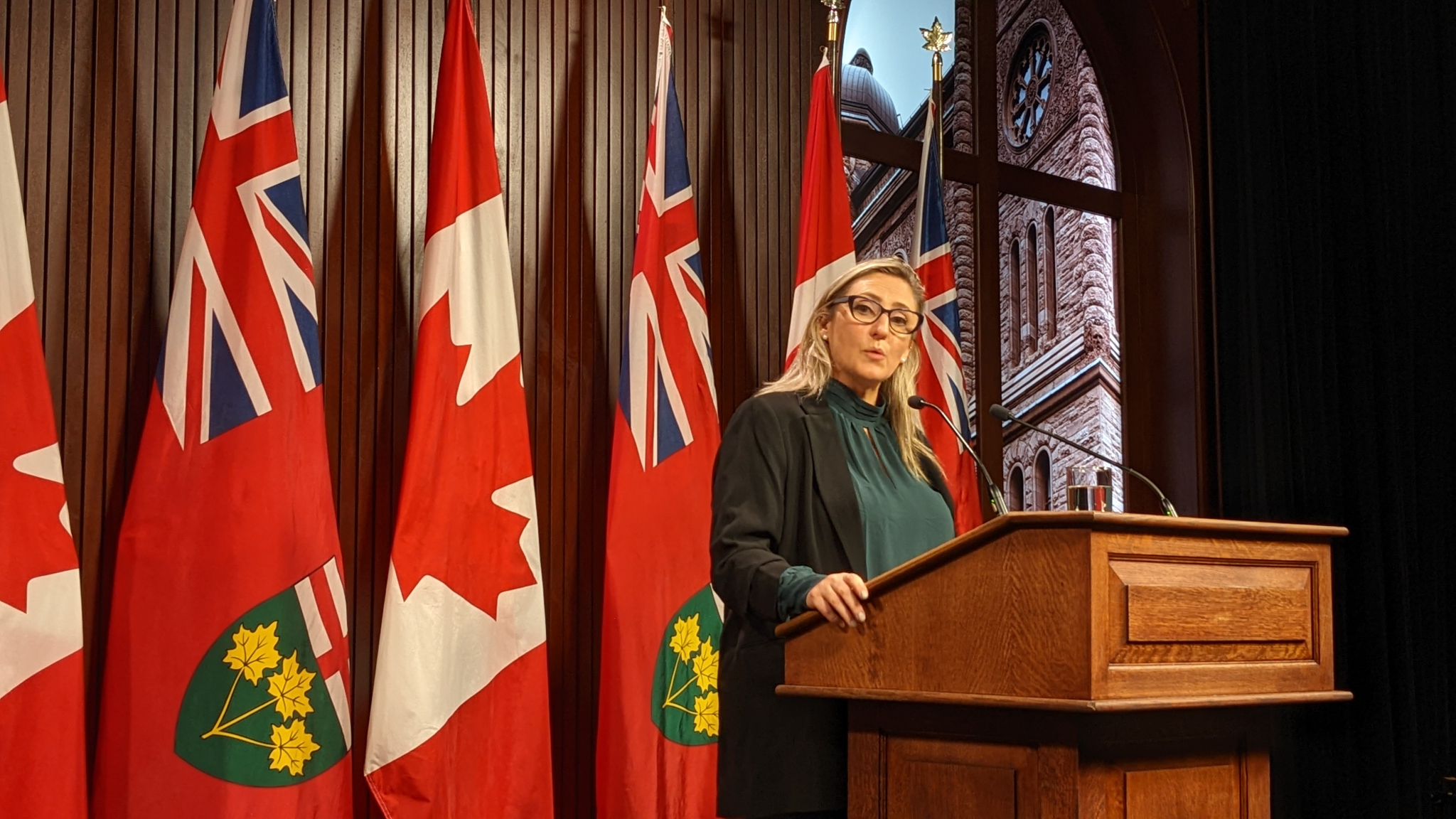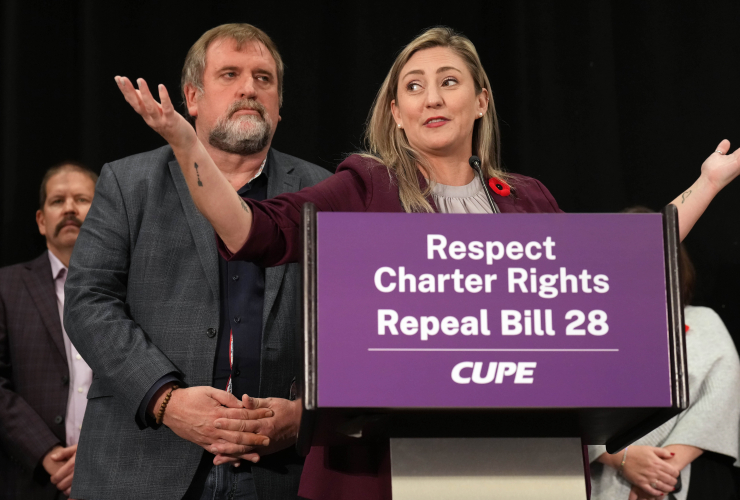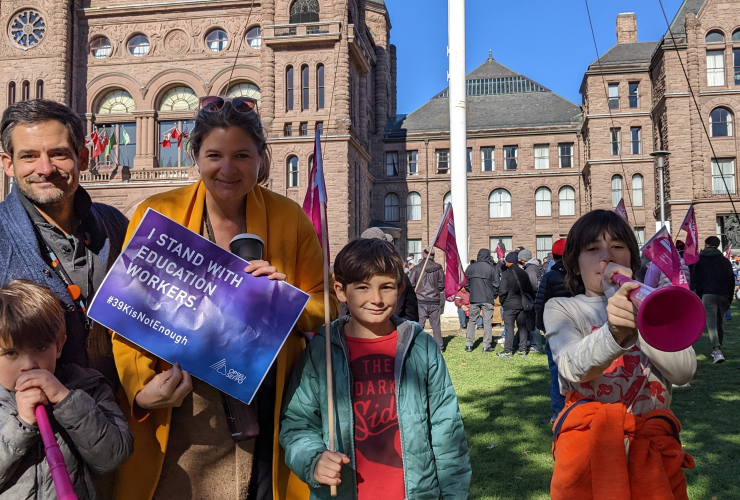- Gov repeals Bill 28, tables budget update that projects deficit
- Critics say economic update aims to stifle wage inflation
- CUPE says far apart on labour deal for education workers
It was a busy day at Queen’s Park on Monday, with education workers getting back their right to strike and Ontario’s government projecting a budget deficit that critics warn could be used to avoid paying them and other public-sector workers a living wage.
The Ford government’s fall economic statement puts billions more away in contingency funding and projects a deficit at odds with the view of the province’s financial watchdog. Hours before that statement, the Financial Accountability Office projected a $6-billion shortfall in education funding over the next six years.
That gap would need to be filled by earmarking more unallocated funds or reducing spending.
Finance Minister Peter Bethlenfalvy said the government was investing historic amounts in health care and education, while also acting prudently by paying down $2 billion more of the province’s debt as economic uncertainty made it necessary to spend cautiously.
Speaking to reporters in the provincial legislature after the finance minister and opposition leaders, union leader Laura Walton said the repeal of Bill 28 lifted a weight off the shoulders of education workers but the effort to bridge the gap was still far from complete.
“We are far apart, I’m not gonna lie. It isn’t done,” said Walton, president of the Canadian Union of Public Employees’ (CUPE) Ontario School Board Council of Unions (OSBCU), which represents 55,000 early childhood educators, educational assistants, janitors, administrators and other support staff in the province’s schools.
The bill led to a tense standoff with schools closed for two days earlier this month. CUPE members walked off the job in protest and were joined by a string of other labour unions, forcing the government to backtrack.
“I wish I could stand up here today and say, ‘Bill’s gone, contract’s ready, off we go,’” she said, adding its repeal felt like a weight from their shoulders that made a deal possible as long as the government was willing to invest in public education.
“Doug Ford needs to show Ontarians that he understands the crisis in our schools,” she said. “Students do not have the direct support they need and deserve. Schools don’t have the skilled workers they need. Parents know this, teachers know this, education workers know this. The Ford government needs to act accordingly.”

The opposition NDP said the latest budget update indicated an unwillingness by the government to do exactly that.
“If the government were genuinely interested in supporting our kids, we would see them making investments in education and child care that ensure the supports are there for parents and kids,” said Chandra Pasma, the NDP’s education critic.
Nor is there new funding for health care in the update, despite pediatric intensive care units reporting they are full across the province amid chronic labour shortages and surgical backlogs.
New measures to address affordability — targeted to drivers, seniors and recipients of disability payments able to work in some capacity — will be funded from existing contingency funds, the government said.
Meanwhile, the government is projecting economic growth will fall off and is putting more money aside to deal with potential headwinds later.
Asked why the government might be indicating a tougher fiscal position, Liberal finance critic Stephanie Bowman said: “One hypothesis is that when you do that, you look like you have less money to pay your workers.”
Walton and other union representatives were at Queen’s Park to cheer the passage of a motion to repeal Bill 28, which the government had armed with the notwithstanding clause to enforce a contract and ban a strike. Ford has repeatedly said the strike was a more dangerous outcome than his sidestepping of the Charter right to protest.
“If we have leaders who believe the exercising of rights is more dangerous than stripping away the rights, it speaks volumes about those leaders,” she said.
Morgan Sharp / Local Journalism Initiative / Canada’s National Observer





Comments